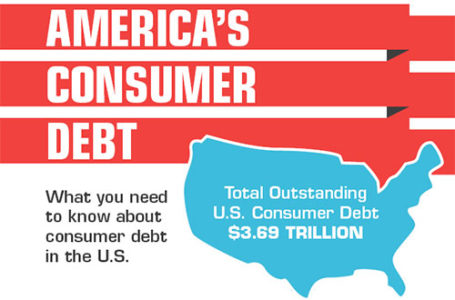Learn to deal with financial stress in a healthy way, to minimize the impact on your life.
According to the American Psychological Association, 62% of people are affected by financial stress. One-third of adults worry about unexpected expenses and 30% of people feel stressed anytime they think about saving for retirement. For 1 in 4 Americas, just figuring out how to cover essential life necessities is their biggest financial stress.
Financial stress can affect your health, make you less productive at work, and cause fights at home. In order to minimize the negative effects of financial stress, you need to develop strategies for coping with financial stress.
Finding practical ways to overcome financial stress
- The first step to deal with financial stress is to take stock of where you are with your finances.
- Gather up your bills and debts so you can make a budget.
- Cut out all nonessentials to free up as much money as possible.
- Identify bills that may be postponed or reduced, like applying for deferment on federal student loans and Currently Not Collectible (CNC) status on IRS tax debt.
- Then look for ways to address the debts that remain, such as using debt consolidation or settlement. These types of solutions can reduce your monthly payments, making it easier to balance your budget.
This process can take a few days. But each debt you figure out how to address will help reduce your financial stress that much more. And having a budget will give you peace of mind that you can at least afford all your basic expenses. Then you can start building up from there
Taking stock of how financial stress is affecting your life
The next step is to think carefully about how financial stress may be affecting you:
- How are you feeling? You may be experiencing headaches, hypertension, or digestive issues. If you have high blood pressure or high blood sugar, financial stress can exacerbate both, so you may want to check your vitals to make sure you don’t need to see a doctor.
- Are you sleeping? Financial stress can lead to insomnia or a lack of restful sleep. You may also be staying up later or engaging in unhealthy habits before bed, such as drinking or snacking.
- What are you eating? Stress can drive you to eat unhealthy foods and it can decrease your metabolism. Try to be conscious of what you’re eating and how much.
- Are you exercising? Taking a walk or going for a run to clear you head can help you reduce your stress. Get outside, play with your children or schedule some time to hit the gym. This will help minimize the effects of financial stress on your physical wellbeing.
If you don’t feel like yourself or even think there’s a possibility that you may be clinically depressed, seek treatment immediately. Preventative measures may have costs, but they’re not even close to what you’ll end up paying if you have to take a trip to the ER because you’re overstressed.
Signs of financial stress
If you’re financially stressed, there will be at least some physical and mental signs showing up in your life. Any of the following could indicate you’re more financially stressed than you want to admit:
Physical signs of financial stress:
- Headaches
- Muscle pain
- Back pain
- Digestive issues, such as stomach pains, acid reflux, heartburn or ulcers
- Insomnia
- High blood pressure
- High blood sugar
- Weight gain or weight loss
Mental and emotional signs of stress:
- Inability to concentrate
- Increased irritability
- Inability to control emotions, like anger or sadness
- Panic attacks
- Increased anxiety
- Restlessness
- Dependency on alcohol or drugs
- Depression
Always remember you don’t have to solve your financial problems alone
Financial stress can make you feel extremely isolated – like it’s you against the world. But there are plenty of professionals and debt help services available that can team up with you to find the solutions you need.
- If you need to settle debts that are in collections, don’t take on the stress of dealing with collectors yourself. Contact a debt settlement company and let them handle the collectors for you.
- If you have credit card debt and don’t know the best way to pay it off, contact a nonprofit consumer credit counseling agency. They can help you understand your options for debt relief and find the best solution for your situation.
- If you owe back taxes to the IRS, contact a licensed tax attorney or tax debt resolution company. They can help you navigate things, like applying for CNC status or setting up tax debt settlement.
- If you’re facing foreclosure, find a HUD-certified housing counselor in your local area. They can help you understand all the options to save your home.

